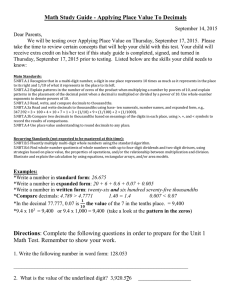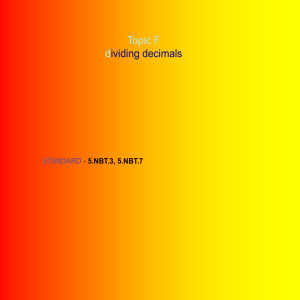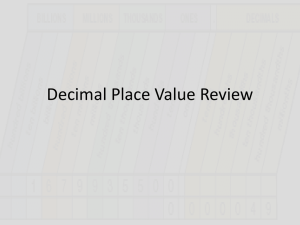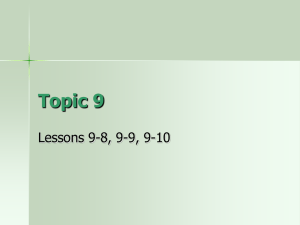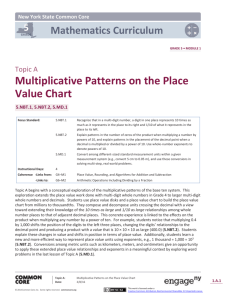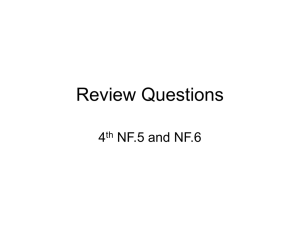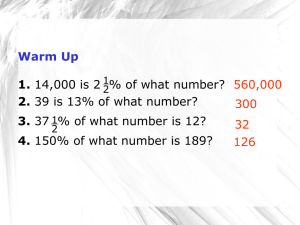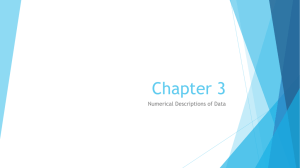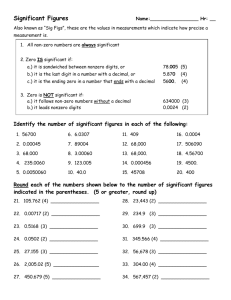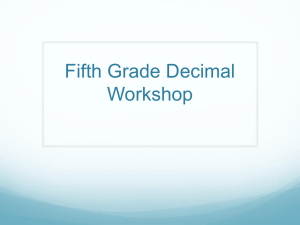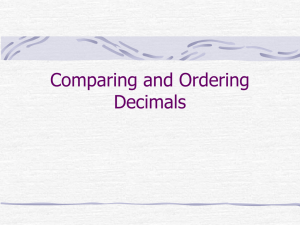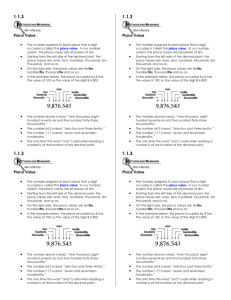5.NBT.1 Lesson 3 - Stamford Public Schools
advertisement
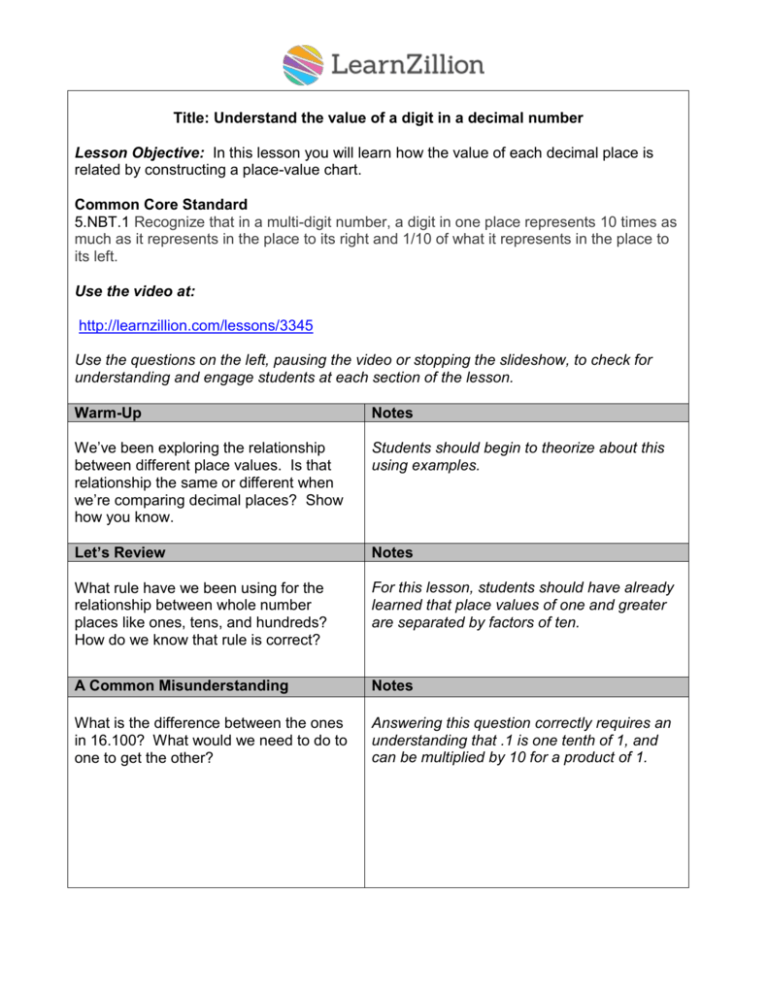
Title: Understand the value of a digit in a decimal number Lesson Objective: In this lesson you will learn how the value of each decimal place is related by constructing a place-value chart. Common Core Standard 5.NBT.1 Recognize that in a multi-digit number, a digit in one place represents 10 times as much as it represents in the place to its right and 1/10 of what it represents in the place to its left. Use the video at: http://learnzillion.com/lessons/3345 Use the questions on the left, pausing the video or stopping the slideshow, to check for understanding and engage students at each section of the lesson. Warm-Up Notes We’ve been exploring the relationship between different place values. Is that relationship the same or different when we’re comparing decimal places? Show how you know. Students should begin to theorize about this using examples. Let’s Review Notes What rule have we been using for the relationship between whole number places like ones, tens, and hundreds? How do we know that rule is correct? For this lesson, students should have already learned that place values of one and greater are separated by factors of ten. A Common Misunderstanding Notes What is the difference between the ones in 16.100? What would we need to do to one to get the other? Answering this question correctly requires an understanding that .1 is one tenth of 1, and can be multiplied by 10 for a product of 1. Core Lesson Notes What pattern do we see in the relationship between tenths, hundredths, and thousandths? The visual model used on the first Core Lesson slide is very similar to that used in other lessons on this standard. It shows that, like larger place values, decimal places are separated by factors of ten. Show how big these places are next to each other using a picture. If this is a ones block… This can also be shown in 2-D to make drawing smaller pieces easier. Students’ drawings should approximate tenths of the cube, then tenths of tenths. …what would a tenth look like? A hundredth? Draw your answer. How many tenths are there in 1? How many hundredths are there in a tenth? In 1? Slide 8 in particular helps students visualize that 1 is a thousand thousandths, and they can see how its behavior corresponds to that of a thousand. How many thousandths are there in 1? Is the relationship among decimal place values the same as among whole number place values? What is the relationship? How do you know? Once it is clear that the relationship is constant on either side of the decimal point, consider asking students why they think we use decimal points and why there isn’t a decimal point elsewhere in our notation. Post-Core Lesson Notes How many thousandths are there in ten? Show how you know. Students should recognize that, regardless of what side of the decimal point the numbers are on, each place value is separated by a factor of ten from those next to it. Practice DoD Download the practice sheet for this lesson on the lesson plan page. Differentiation During the lesson and practice, identify students who are struggling. See below for interventions: Students don’t understand the concept of powers of ten (4.NBT.1): http://learnzillion.com/lessons/805 Students don’t know how to use a place value chart (2.NBT.1): http://learnzillion.com/lessons/3850 Students don’t understand the concept of powers of ten when dividing (4.NBT.1): http://learnzillion.com/lessons/806
